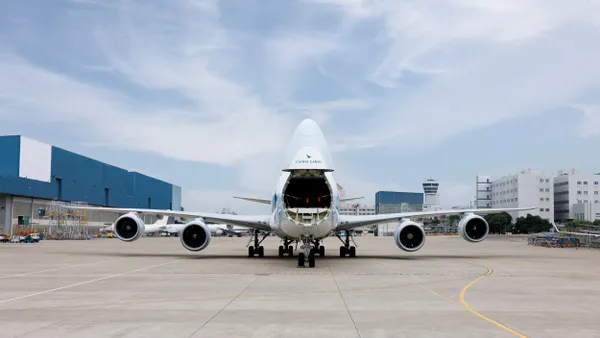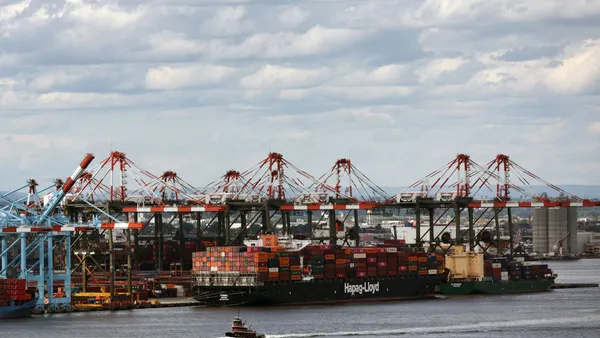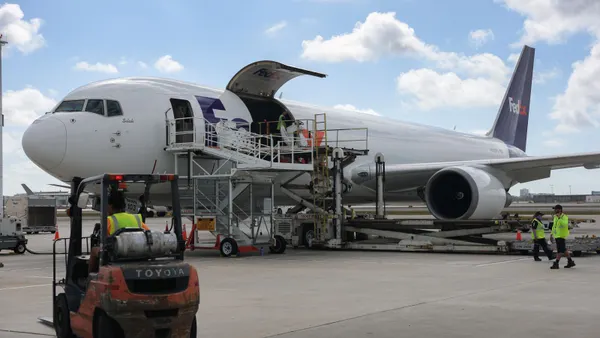Dive Brief:
- The Federal Aviation Administration issued guidance Wednesday for safe carriage of cargo in passenger planes.
- Passenger airlines all over the world are redirecting their fleets to ferry cargo since stay-at-home orders and travel bans have decreased passenger flights by roughly 90%. American Airlines, Delta, Hawaiian, and United Airlines have leveraged the bellies and passenger cabins of their aircraft for cargo flights, often removing seats and using the empty tracks to secure cargo.
- The guidelines instruct airlines on the acceptable weight distribution of cargo, staffing of planes and precautions to avoid fire or other detrimental effects from hazardous materials.
Dive Insight:
The FAA's guidelines add formal safety standards to a practice many global airlines have already undertaken — retasking passenger planes. And its not just financial necessity, nor the urgent need for essential supplies to fight COVID-19 that drives these shifts. The global air cargo supply relies heavily on the belly space of passenger planes and with the vast majority of commercial flights canceled, the industry has lost capacity and demand is high.
Global air freight capacity fell 4.4% YoY in February (the most recent data available) in the first contraction since February 2017. The International Air Transport Association (IATA) credited cancellations from airlines in the Asia Pacific region for capacity reduction at the time and the magnitude of flight cancellations has only grown since. Airfreight rates have been climbing across the globe since late February, according to the TAC Index, suggesting a greater drop in capacity may be reflected in future data.
On Thursday, IATA called for governments to provide better support to airlines wishing to shift focus, and equipment, from passengers to cargo.
"Airlines are providing as much capacity as they can. Governments need to step up and ensure that vital supply lines remain open and efficient and that there is adequate infrastructure and support available in the air and on the ground," Glyn Hughes, global head of air cargo at IATA said in a statement.
IATA urged governments to:
- Reduce paperwork for charter operations
- Exempt cargo crew from quarantine rules that apply to the general population
- Ensure adequate staff and facilities to process cargo efficiently
- Coordinate with other countries to mutually recognize agreed global standards for health certificates, licenses, etc.
- Ensure airport operations despite passenger flight declines
"Because of the sharp drop in passenger flights, some airports that serve the critical alternate airport function are closed or not available at all times. A coordinated effort by governments to keep alternate airports operational is needed. If not, the global air cargo network cannot function and vital shipments are at risk," said Hughes.














